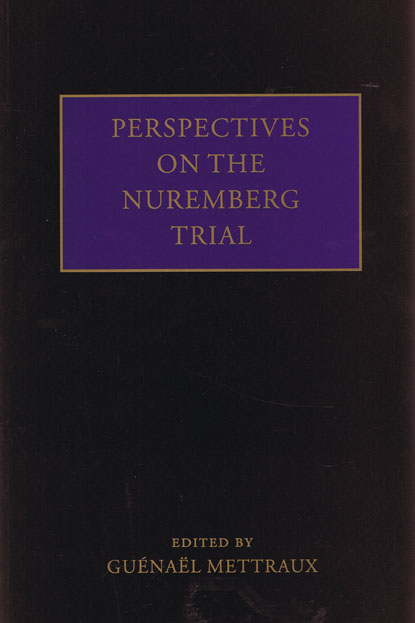
The trial of major Nazi war criminals in Nuremberg was a landmark event in the development of modern international law, and continues to be highly influential in our understanding of international criminal law and post-conflict justice. This volume offers a unique collection of the most important essays written on the Trial, discussing the key legal, political and philosophical questions raised by the Trial both at the time and in historical perspective.
The collection focuses on pieces from those involved in the Tribunal, discussing the establishment of the Tribunal, the Trial itself, and the debate that followed the Judgment. Also included are representative essays of the academic debate that has surrounded Nuremberg in the sixty years since the Trial. Ranging from the contribution of Nuremberg to the substantive development of international criminal law to the philosophical evaluation of legalism in post-conflict international relations, the perspectives provided by the essays offer a unique overview of the persistent significance of Nuremberg across a range of academic disciplines.
The collection also features newly translated essays from key German, Russian, and French writers, available in English for the first time; a new essay by Guénaël Mettraux examining the Nuremberg legacy in contemporary international criminal justice; and an exhaustive bibliography of the literature on Nuremberg.